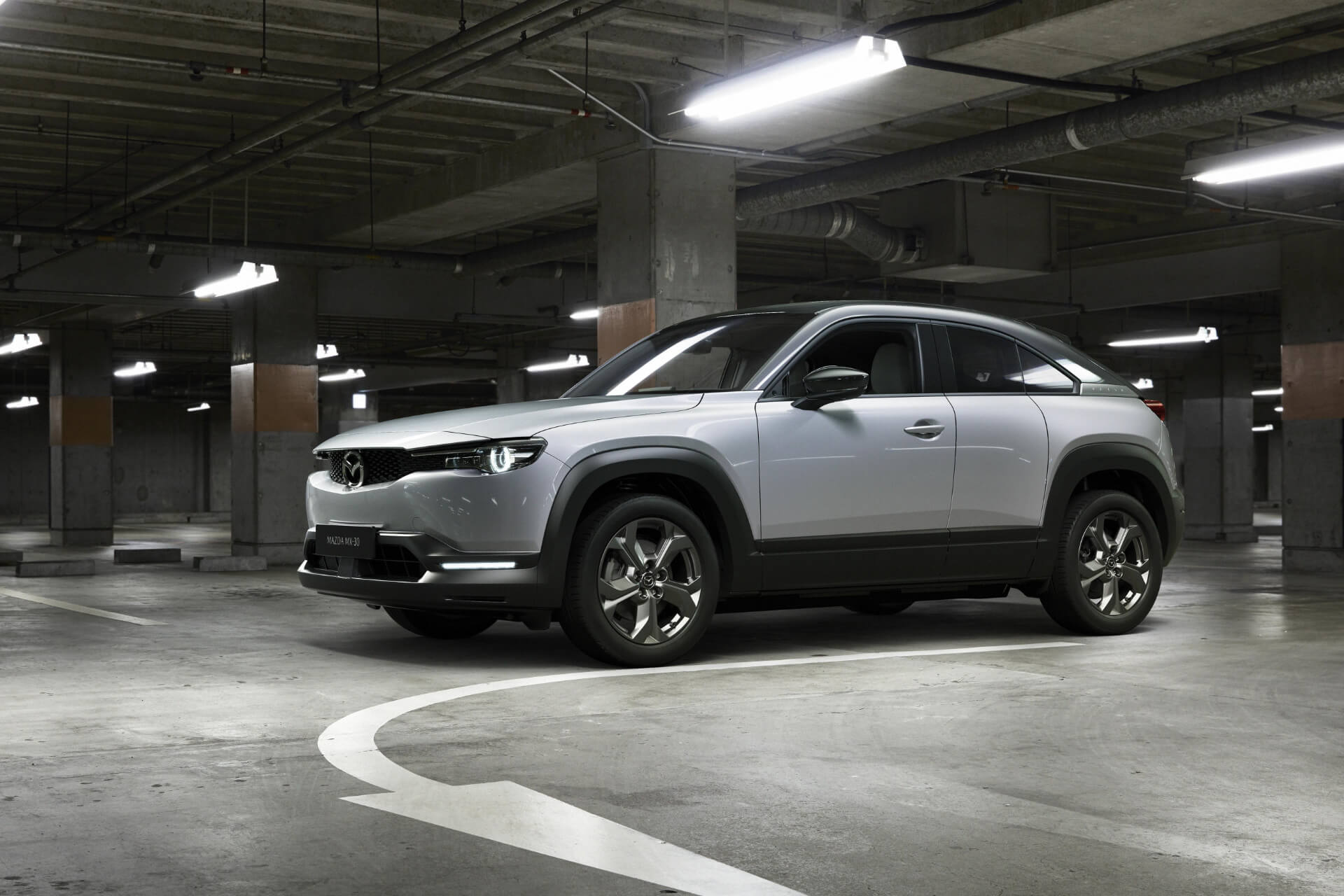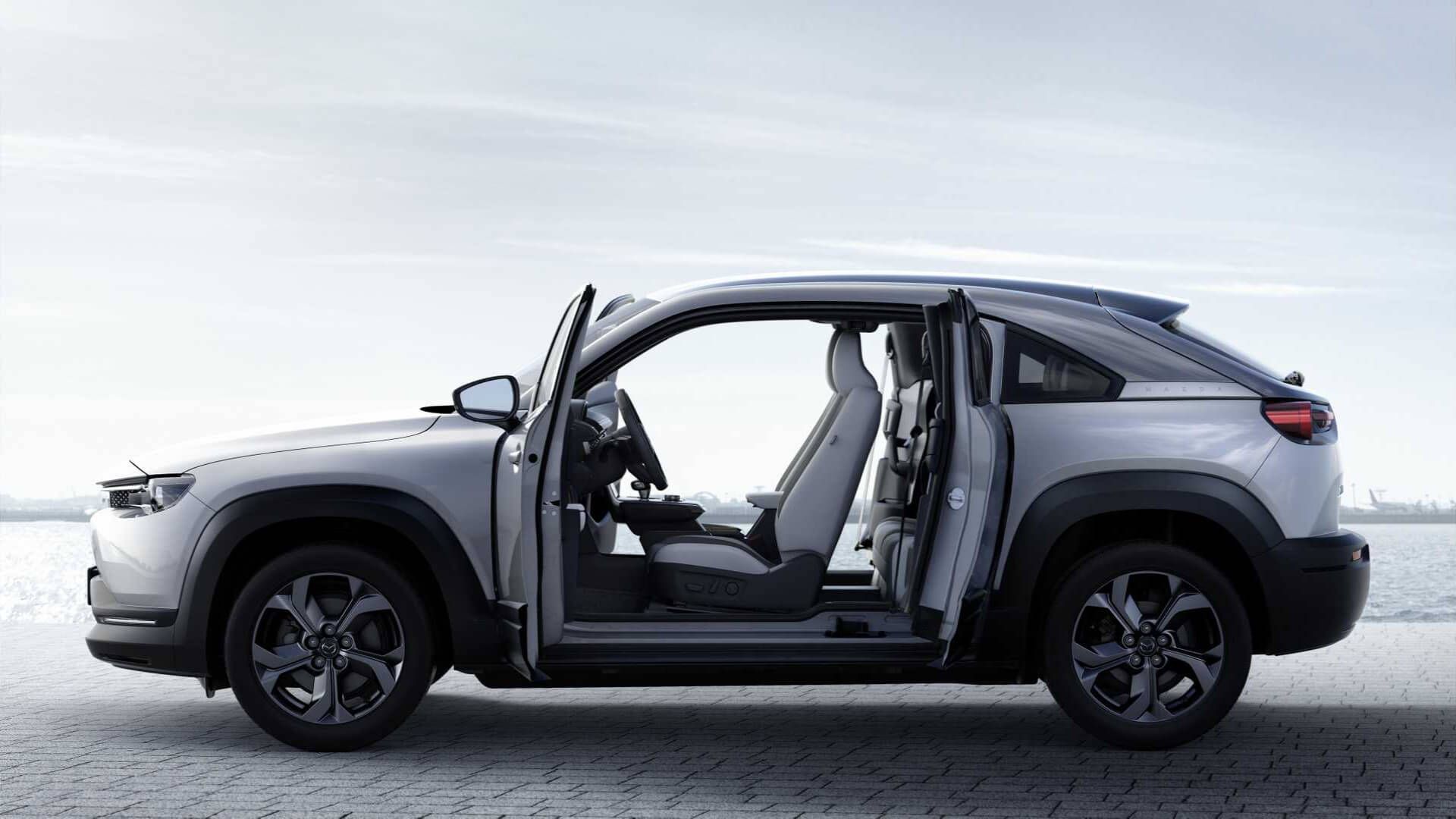What just happened? With each passing day, the EV car club gains a new member. Today it's a small sporty crossover from Mazda, a company famous for its quirky rotary engines in the iconic RX-7 and RX-8. The latest MX-30 draws inspiration from the latter when it comes to using suicide doors and looks to charge forward with Mazda's e-Skyactiv powertrain.

Thanks to its 'Kodo Design Language,' nearly all modern Mazdas, including the new MX-30, have a sporty and purposeful look to them. While the Japanese carmaker usually reserves the 'CX' moniker for its SUVs, the brand's first production MX-30 EV is doing things differently.
The crossover was recently revealed at the Tokyo Motor Show where, apart from the 143 hp (106 kW) single motor and a 35.5kWh lithium-ion battery, Mazda didn't reveal much else on paper like the car's range or charging times. It did, however, go to great lengths about the MX-30's sporting credentials and environmental friendliness.

For a start, the e-Skyactive powertrain will offer "outstanding response with smooth dynamic behavior to achieve performance that drivers can enjoy naturally," including Mazda's G-Vectoring chassis control system for improved handling. The interior, meanwhile, features door trim made from recycled plastic, and the console tray uses cork from trees that have not been felled.

The "free style" doors, reminiscent of the RX-8, means the absence of a B-pillar to make for easier access into the back where things might get a little tight in terms of headroom, given the swoopy rear-end.
Pre-orders for the MX-30 are currently open in the European market with deliveries starting next year, while a US arrival is expected to follow at some point in the near future.
https://www.techspot.com/news/82460-mazda-debuts-electric-mx-30-crossover-tokyo-motor.html
